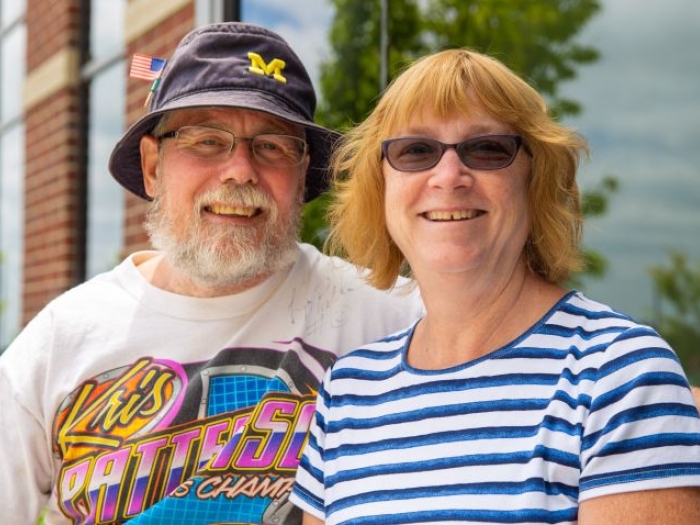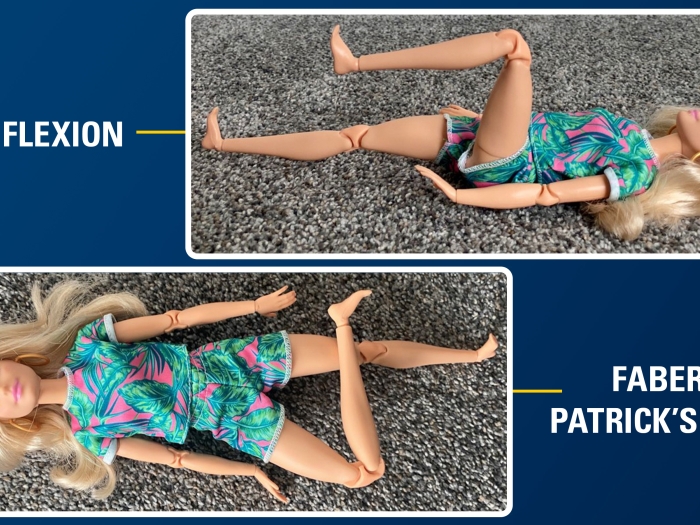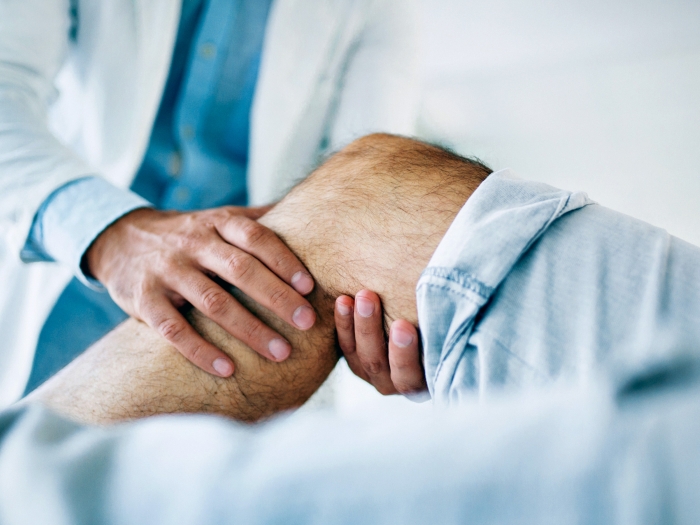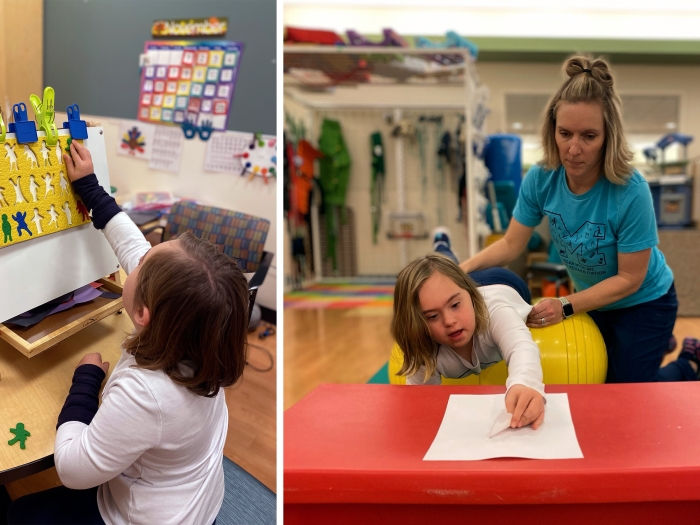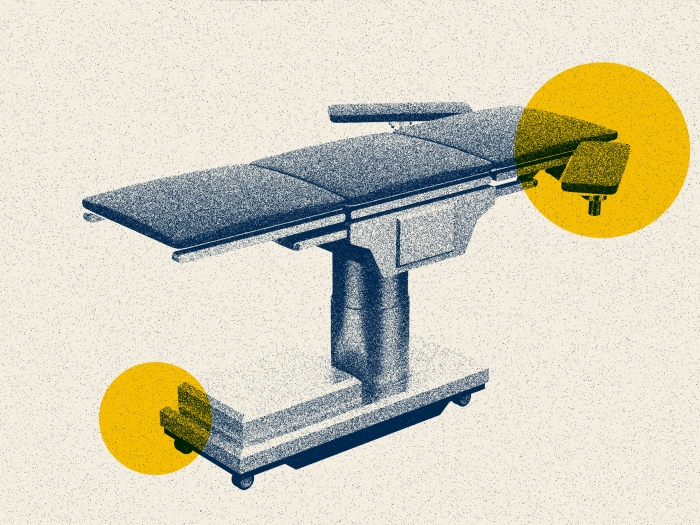After radiation to treat a brain tumor left one patient with weakness on the right side of her body, physical therapy allowed her to improve her mobility, strength and balance.
2:00 PM
Author |
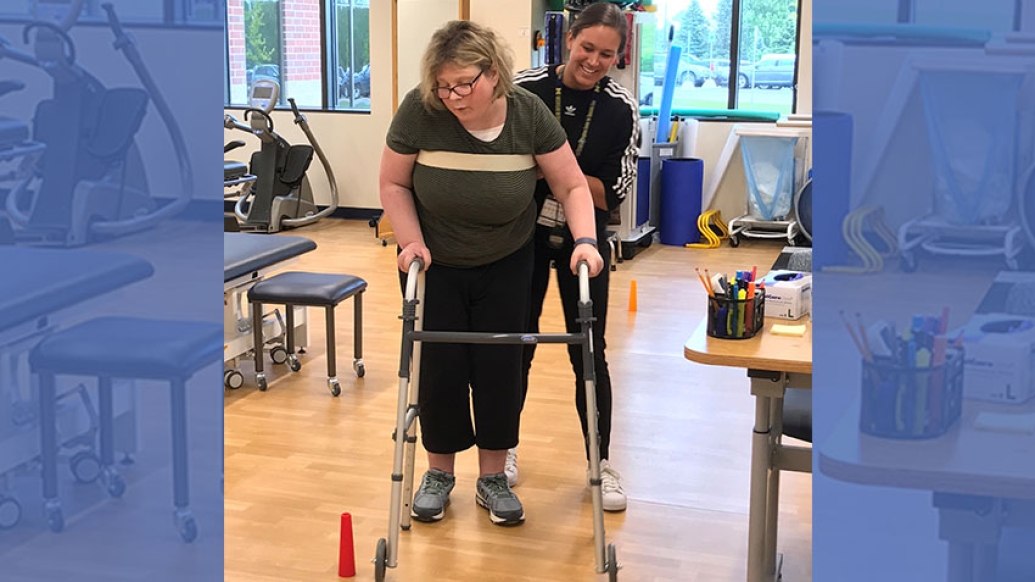
In 2015, Beth Windel experienced a sudden neurological change and was rushed to the hospital.
She was having seizures that gave her side effects similar to a stroke, including weakness on the right side of her body.
Windel's care team determined the seizures were likely a side effect of radiation she received for a cancerous brain tumor that she had removed at the University of Michigan Rogel Cancer Center in 2003.
The seizures required Windel to be hospitalized for six months in the intensive care unit and the inpatient physical medicine and rehabilitation unit. She needed a feeding tube, a lift to get in her wheelchair and could barely speak, among other side effects.
LISTEN UP: Add the new Michigan Medicine News Break to your Alexa-enabled device, or subscribe to our daily updates on iTunes, Google Play and Stitcher.
"I experienced short-term memory loss, endocrinology issues and mobility issues," says Windel, who is now 39 years old.
After leaving the hospital, she moved to a sub-acute rehabilitation facility where she stayed for four months. Her care team recommended she keep up with physical therapy after leaving the facility to continue regaining control of the right side of her body.
Windel, a Lakeland, Mich. resident, went to a few different physical therapy businesses before finding the Michigan Medicine Brighton Center for Specialty Care close to her home.
"Beth came to me with encephalopathy, or damage to her brain, that made her unable to walk or perform activities of daily living without assistance," says Jessica Benchley, a neurology physical therapist at the Michigan Medicine Comprehensive Musculoskeletal Center at the Brighton Center for Specialty Care.
Windel began twice-a-week physical therapy sessions at the CMC with Benchley and started seeing improvements after just a few sessions.
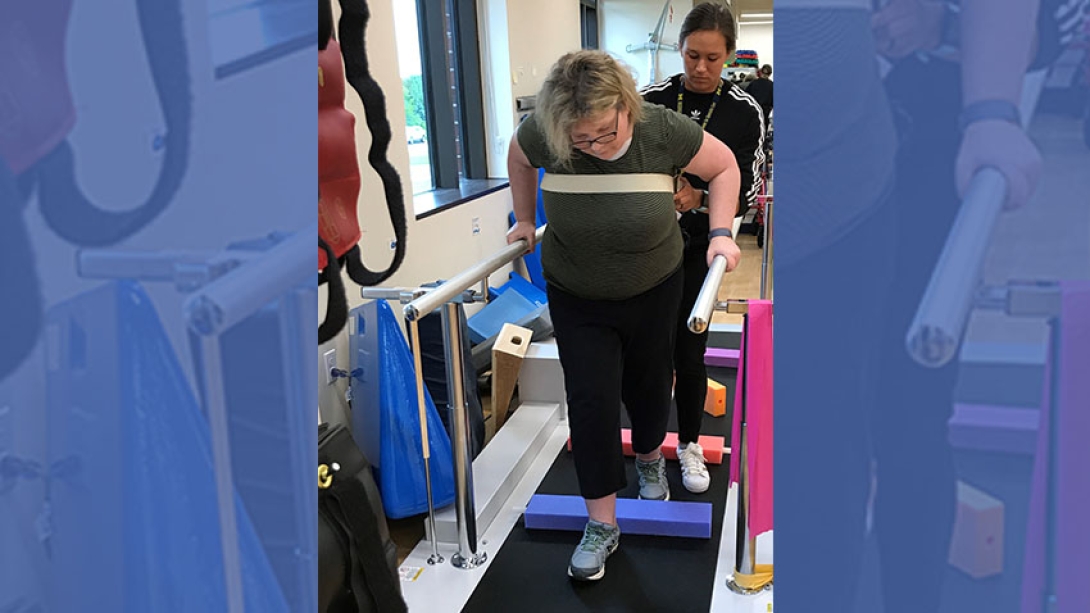
"I started working with Jessie on getting out of my wheelchair and using a walker," Windel says. "She also uses a gait belt to help assist me in walking and doing the various exercises during our sessions."
Getting back to independence
When Windel first came home from the hospital after the seizures, her family realized they would need to make some adaptations to their home.
MORE FROM MICHIGAN: Sign up for our weekly newsletter
"We have a finished basement, and we had to drive her up to the sliding door of it and bring her in that way," says Beth's mom, Maureen. "That was the only way we could get her wheelchair in the house and avoid using stairs."
"At that time, Beth required use of a lift to get her in and out of her hospital bed and chairs," she adds. "We knew that having her use the basement to enter the house couldn't last too long so we put an addition onto our main level where she could get in and out easier and have a more independent living setting."
Windel adds, "My dad built a ramp from the door leading out to our garage so I can get in and out."
Her other family members and friends have been supportive, too.
"My brother built me a ramp to get in and out of his family's house and some of our friends redid the deck of their pontoon boat so I can wheel on to it," she says.
Although her wheelchair helps her get around, Windel has been working hard with Benchley to no longer need it and gain back her independence.
"I love to go shopping, go to the movies and visit my grandma at her senior living home," Windel says.
"I play Bingo with her and like to win," she grins.
Benchley is impressed with how far Windel has come in just a few short months.
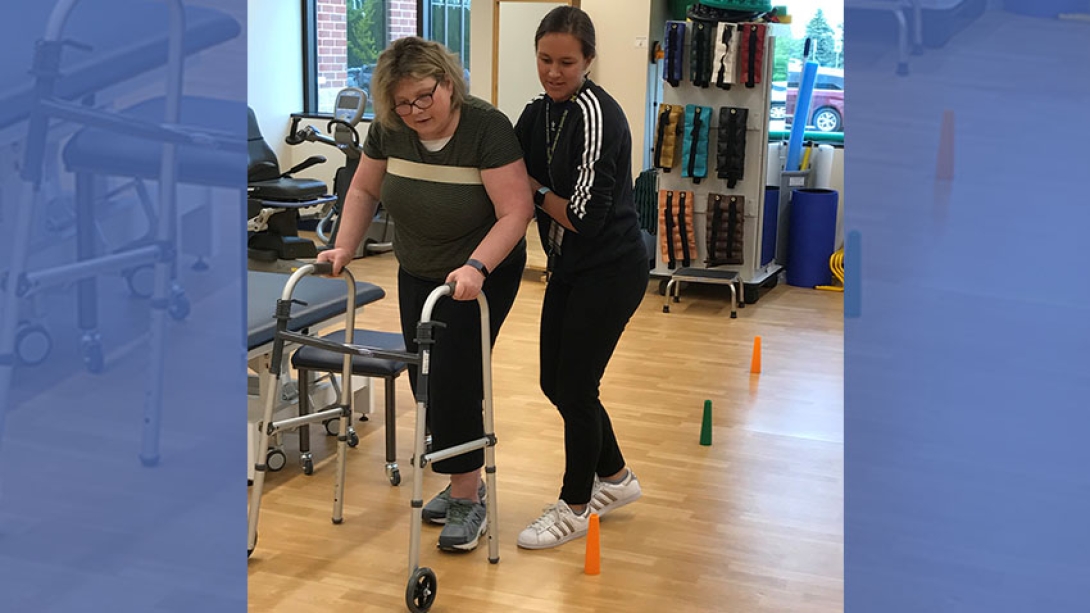
"She's already able to just use her walker to get around and has been doing most of those life activities, like using the restroom and grooming, by herself," Benchley says. "She is super motivated at home and performs 30 to 40 minutes of exercise every day."
"She's also hilarious and stays positive no matter what is thrown at her. She's a riot!"
The feeling is mutual.
"Jessie and I have a love, hate relationship," Windel jokes. "She understands my humor."
Keep improving
Windel says she's seen a lot of improvement since starting physical therapy at the CMC, and she participates in a variety of activities outside of the clinic to keep improving her health, both mentally and physically.
"I attend a University of Michigan support group for people with brain tumors," she says.
Maureen adds, "Beth was able to walk into the support group's holiday party this year and she was so proud."
"I also like going to yoga sessions to keep improving my balance and strength," Windel says.
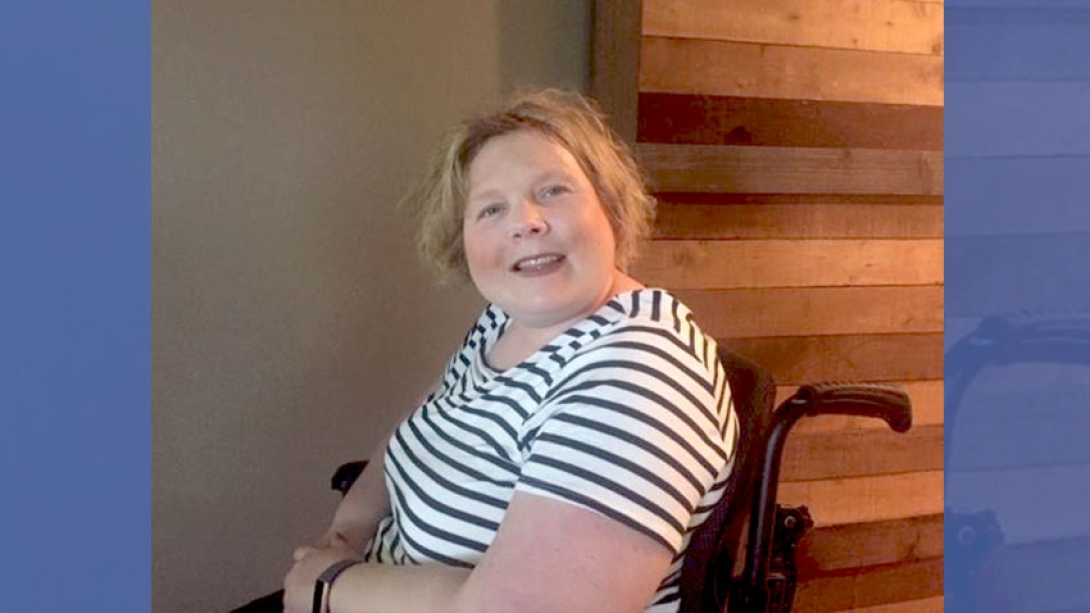
She also participates in the American Brain Tumor Association BT5K at Kensington Metropark and the American Cancer Society's Relay for Life event in Brighton.
"My dad always tells me to take it 'slow and easy, Beth!', but that's not me," she jokes.
Staying busy and positive is part of Windel's life mantra.
"I'd tell others in my setting: don't let it bring you down," she says. "There's always something good."

Explore a variety of healthcare news & stories by visiting the Health Lab home page for more articles.

Department of Communication at Michigan Medicine
Want top health & research news weekly? Sign up for Health Lab’s newsletters today!
